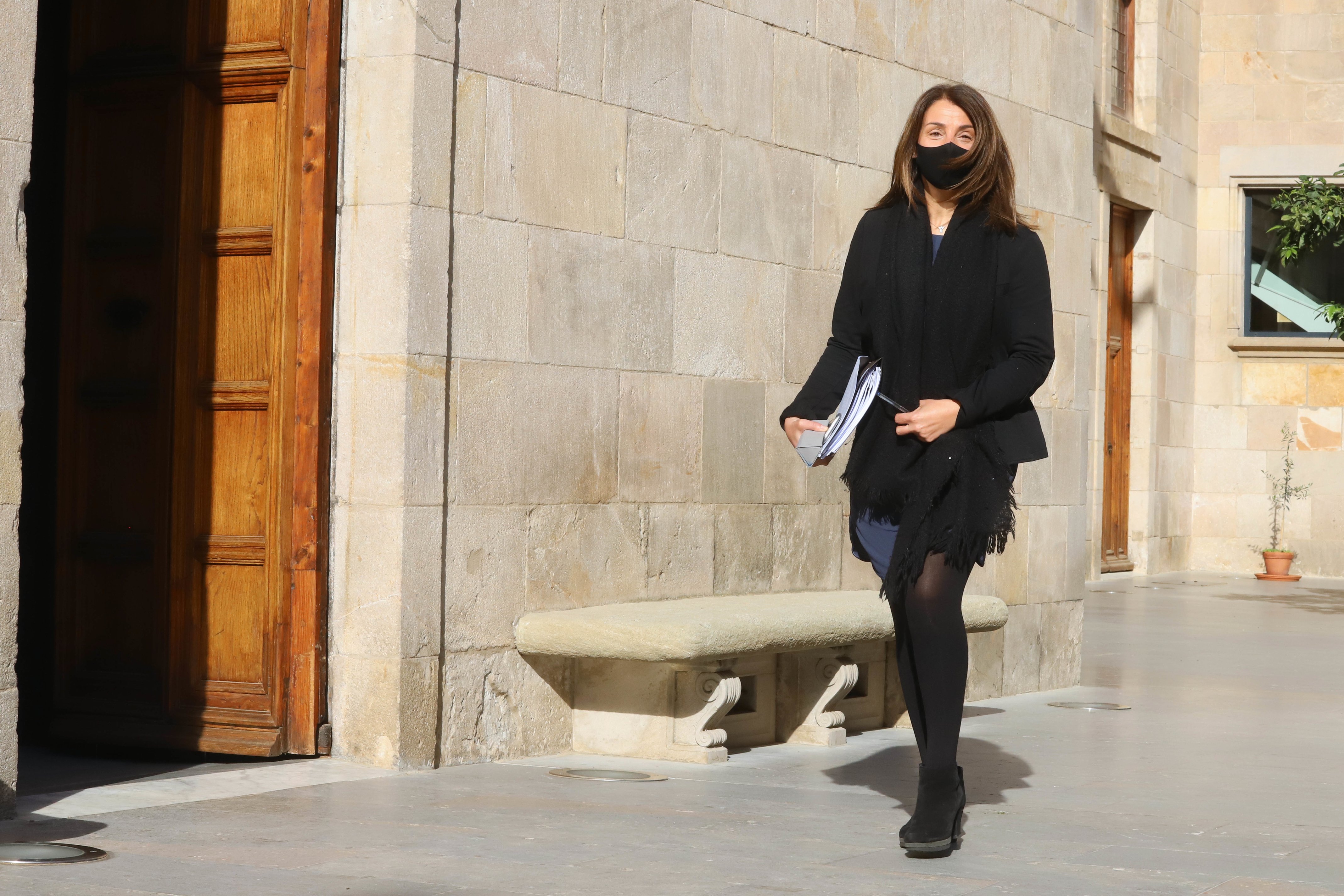The Catalan government says that, as the data for Covid-19 in Catalonia currently stands, it would not be necessary to impose a night-time curfew once Spain's state of alarm status comes to an end on May 9th. However, as acting government spokesperson Meritxell Budó explained today, the executive is working on passing regulations that could be applied almost immediately if necessary: "The epidemiological situation we have right now makes us believe that if the Spanish state raises the state of alarm, we will not need to apply additional measures - as long as the data trends continue as they are now," she told Spanish public television.
Intensive care unit occupancy in Catalonia by coronavirus patients remains below the figure of 500 places taken and the number of daily new infections reported is below 1,000, according to the Catalan health department. This slow but progressive decline in key indicators favours the scenario which Budó sketched out, but another factor which has helped is "the key week for vaccination" which Catalonia faces over the next few days with the arrival of vaccine consignments that will allow the vaccination levels among the oldest age groups of Catalans "to reach 80% of the total" in the cohort.
Thus, she believes that all restrictions are, right now, on the table: "Anything that it is not essential to prolong, we will not prolong. Apart from mobility, there are also other measures that we must review." She mentioned that restaurant dinners, whose re-introduction after next weekend has already been announced, will be regulated under the current criteria that apply to lunches: "Inside or outside, with the measures now decreed. It must be possible to apply the same rules in the evenings as in the mornings".
Nevertheless, the Catalan government is working so that it will be ready to react if the scenario becomes more complicated: "In July 2020 we passed a decree that allowed some measures, with the final endorsement of a judge. Now, we are working on another document that we plan to approve in the cabinet meeting tomorrow." With the disappearance of the state of alarm - which restricts rights under the Spanish constitution, and to do so, requires the approval of parliament - restrictive measures which may be necessary such as a night-time curfew "must have a legal umbrella", says Budó, as "it is an exceptional measure." The government want to ensure that there is "the necessary regulatory framework."
In the absence of the state of the alarm, future restrictions such as curfews or confinements, will require the endorsement of the Catalan High Court (TSJC). The government believes that this process will slow down decision-making and estimates that, when new measures are agreed, it will take at least three days before they can be implemented.
Over six months' curfew
If the current curfew is lifted on May 9th, it will have been in force in Catalonia for exactly 197 days - close to six and a half months. The Spanish government brought in the curfew throughout Spain when the second wave of Covid-19 hit the country in the autumn. The curfew took effect in Catalonia on October 25th and has applied ever since, from 10pm to 6am, with some timetable changes at Christmas.
The Spanish government asked Congress to approve a state of alarm for up to six months to give legal coverage to the curfew as well as to some other mobility restrictions. The state of alarm is one of the three emergency statuses legally defined in Spain, and can be granted for two weeks by government decree, but thereafter requires parliamentary approval.

